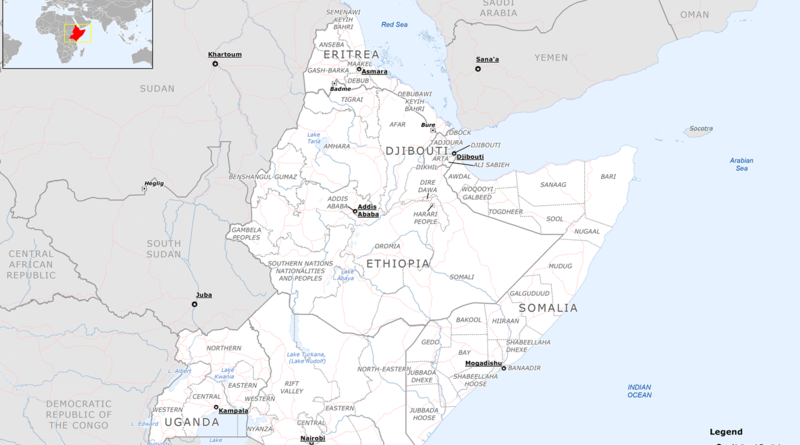The Horn Of Africa States: The Dangers To The Region’s Development – OpEd
The current situation of the region is, as is usual for the region, uncomfortable. It is marked by chaos, poverty, and internal conflicts within each of the countries. Tense relations among the countries of the region, has now joined the already full plate of the region’s disasters. Is this of their making or is this being engineered from beyond the region?
No doubt there external factors, but most of the problems would have internal dimensions that are being exploited by whatever foreign hands there are. The region is not unique in this respect for the whole world seems to have lost its anchor and does not appear to be on an even keel. The troubles in Europe, in the Americas and Asia, the disrespect for international norms and rules and the greed that is rampant all over the globe, only aggravate the region which was already troubled and tormented by its own idiosyncrasies and folies.
How could the region ever achieve development sustainable or not, when wars, insecurities, and instability appears to be the norm and not the exception? How could there be development in a region where the component countries do not cooperate and collaborate? How could, indeed, there be cooperation when some countries are disturbing the very existence of others in the region? The natural outcome of such a situation is chaos and underdevelopment and, of course, food insecurities, political instabilities and no peace.
What is worse is that it is difficult to predict what would happen over the next several years, when the basis of development appears to have been undermined. The corroding relations between Ethiopia and Somalia, the largest of the four Horn African States’ countries is not helping. Surely the trajectory of development, if any, in the region would be altered and the chances of achieving any development goals would be missed, if the region does not coil back from its current pathway.
Although the region was going through its chaotic developmental path, at least, the countries of the region were not at each other’s throats in the recent past, which appears to be the case now and which, of course, adversely affects the region’s chances of any development in the foreseeable future unless the leaders of the region change course.
The region’s economic growth which appeared to be on the right track is now declining and would probably go negative if not rescued. Foreign debts would exasperate the region’s finances more and there would less foreign direct investments. Money is cowardly and would not come to a region where there are wars and conflicts. Perhaps, it may only help adventurer groups who would probably be involved in not so good businesses, anyway.
The region faces the same issues of population growth, high unemployment or underemployment and hence migration, worsening poverty mainly caused by continuing ethnic conflicts which drives many people from their traditional livelihoods of farming or pastoral activities, injustices and inadequate legal processes and weak and untrustworthy governance systems. This is being exasperated by the tensions that are rising among the countries of the region which in the past appeared to have been calming down.
The likelihood of transformation into democratic processes in the region is slowly dying and the region appears to be reverting to its traditional authoritarian regimes with power getting concentrated in the head of governments and not even with the government institutions. Personality cults appears to be developing. This will pull back the region for decades unless the leaders through some miracle change their minds to institute democratic processes, settle the ethnic tensions they have created in their respective countries, and encourage or move towards cooperation with the neighborhood.
There is presence in the region of too many advisers and consultants either from UN bodies or other governments and self-motivated NGOS taking advantage of the region’s troubles. It is a wonder how many special envoys there are in the region in addition to the traditional ambassadors. Yet the region seems to be sinking every year deeper into chaos. There are terror groups and other actors, which appear to be strong and influential in the region and which appear to being managed from beyond the region by invincible hands, which the governments and all those helping hands are unable to handle.
It is often said that development stops when conflict starts. In the case of the Horn of Africa States region, it would appear that development never really started, for over the past sixty to seventy years, the region appears to have been conflicted and hence no development except some general appearance of development has taken place in the region. The rising tensions between the countries of the region are only exasperating an already difficult situation, and this poses more danger to the region’s development possibilities.

